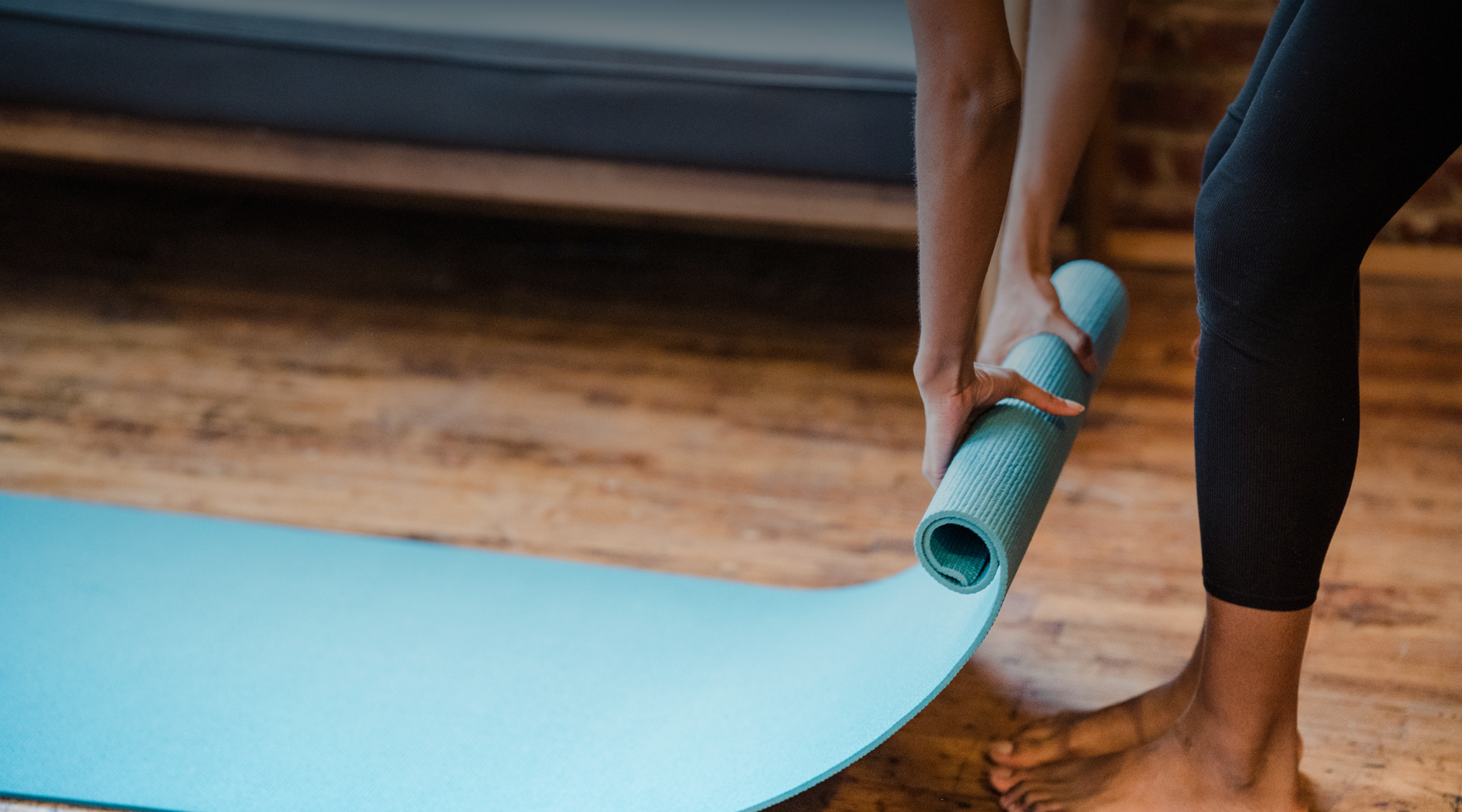In a world that often glorifies hustle culture and endless productivity, it can feel like there’s little room left to prioritize ourselves. Yet, in reality, the most important relationship you’ll ever have is the one with yourself. Self-care is not a selfish act—it’s a vital one. It’s about taking intentional steps to restore balance, nurture emotional well-being, and support your overall health. Through the integration of Aromatherapy, Yoga, Meditation, and Spiritual Well-Being, you can cultivate a self-care routine that not only rejuvenates your body but also fortifies your spirit.
In this blog post, we’ll explore how you can embrace these practices, why self-care is essential, and practical ways to implement these rituals in your daily life. Let’s dive into making self-care a priority, even when life feels overwhelming.
Why Self-Care Matters: The Foundation for Emotional Resilience
Self-care isn't a luxury—it's a necessity. It’s easy to feel guilty for taking time for yourself when there are other demands calling your name. However, self-care is an act of kindness toward yourself, a way to refuel your mental, emotional, and physical reserves. By prioritizing your well-being, you’re better able to navigate life’s challenges and show up as your best self for others. Neglecting this vital act often leads to burnout, stress, and a disconnect between mind and body.
Trauma-informed self-care is particularly important for those who have experienced trauma, as it allows for gentle, mindful approaches that respect your boundaries. It’s not about rushing into wellness, but about listening to your body and soul, honoring your journey, and creating space for healing at your own pace. Let’s explore how you can integrate self-care practices into your life using aromatherapy, yoga, meditation, and spiritual well-being.
Aromatherapy: Healing Emotional Resilience with Essential Oils
Aromatherapy offers a powerful way to reconnect with your body and mind through the use of essential oils. Whether you’re seeking to reduce stress, lift your mood, or promote relaxation, aromatherapy provides a natural approach to self-care that nurtures emotional resilience.
How Aromatherapy Works
Essential oils are concentrated plant extracts known for their therapeutic benefits. When inhaled or applied to the skin (properly diluted), the aroma of these oils travels through the olfactory system to the brain, influencing areas responsible for emotion, memory, and mood. Aromatherapy can promote relaxation, improve sleep quality, and even enhance focus.
Trauma-Informed Aromatherapy for Emotional Healing
In a trauma-informed approach to aromatherapy, essential oils are selected based on the emotional state of the individual. Oils such as lavender for calming, bergamot for mood lifting, and vetiver for grounding are often used to gently support emotional healing. Trauma-informed aromatherapy acknowledges that each person’s healing journey is unique and ensures that the treatment is supportive rather than overwhelming.
Ways to Implement Aromatherapy into Your Self-Care Routine
- Essential Oil Diffusion: Use an essential oil diffuser to create a calming atmosphere in your home or workspace. Try diffusing oils like lavender or frankincense to create a peaceful environment that promotes relaxation and stress relief.
- Personal Inhalers: Create your own aromatherapy inhalers with blends designed for your specific needs, such as a calming mix for anxiety or an energizing blend to boost focus.
- Aromatherapy Bath: Add a few drops of your favorite essential oil(s) to your choice of carrier oil then add a few drops to a warm bath for an immersive, soothing experience that nourishes both body and mind.
- Massage Oils: Combine essential oils with a carrier oil (like jojoba or coconut) to create a custom massage oil that supports physical relaxation and emotional well-being. A massage incorporating oils like lavender or chamomile can be particularly grounding.
Yoga: Physical and Mental Balance Through Mindful Movement
Yoga is a practice that connects mind, body, and spirit through movement, breathing, and meditation. It’s not just about flexibility and strength; it’s about cultivating inner balance and peace. Through mindful yoga practice, we are reminded to be present, to move with intention, and to respect the body's needs. Whether you're a seasoned yogi or new to the mat, yoga can be an essential part of your self-care routine.
The Benefits of Yoga for Self-Care
- Physical Healing: Yoga strengthens the body while improving flexibility and posture. By focusing on alignment and breath, yoga promotes better physical health.
- Mental Clarity: The mindfulness aspect of yoga brings mental clarity and peace. Through controlled breathing and focused movement, stress and tension are released, helping the mind achieve stillness.
- Emotional Resilience: Yoga provides an opportunity to process emotions through movement, offering a safe space for self-reflection and healing. It's a way to release stored tension and emotional trauma.
How to Make Yoga a Self-Care Practice
- Morning Stretch and Breathe: Start your day with a simple yoga routine that focuses on stretching and deep breathing. A 10-minute morning practice can set a positive tone for the day ahead.
- Yoga Nidra for Relaxation: Practice Yoga Nidra, a form of deep relaxation, before bed to help alleviate anxiety and improve sleep quality. It’s a wonderful way to wind down and prepare for restorative rest.
- Gentle Flow for Emotional Release: Incorporate a gentle flow yoga sequence that allows you to move with your breath, release tension, and create space for healing. Use poses like child’s pose and forward fold to encourage surrender and emotional release.
Meditation: Finding Inner Calm in the Chaos
Meditation is a transformative practice that encourages mindfulness, focus, and emotional regulation. At the core of self-care, meditation allows us to pause, breathe, and reconnect with our inner selves. In a world filled with distractions, taking time to meditate can offer much-needed peace and clarity.
The Healing Power of Meditation
- Stress Reduction: Meditation helps reduce stress by calming the mind and focusing attention inward. Whether you're dealing with anxiety or daily stressors, meditation provides a mental reset.
- Emotional Regulation: Through consistent practice, meditation helps you become more aware of your emotions and reactions, empowering you to respond rather than react impulsively.
- Improved Focus: Meditation sharpens your mental focus, allowing you to approach challenges with greater clarity and calmness.
Simple Ways to Incorporate Meditation into Your Life
- Mindful Breathing: Start with a 5-minute daily practice of mindful breathing. Focus on the sensation of your breath entering and leaving your body to calm your mind and ground yourself in the present moment.
- Guided Meditation: Use guided meditations to help you stay focused and explore specific themes like relaxation, healing, or emotional release. Apps like Insight Timer or Calm offer a range of meditations tailored to your needs.
- Walking Meditation: Practice mindfulness while walking by focusing on your steps, the sensation of the ground beneath your feet, and the rhythm of your breathing. This practice can be incredibly grounding and is a wonderful way to integrate meditation into daily activities.
Spiritual Well-Being: Cultivating a Deeper Connection
At the heart of self-care is a connection to something greater—whether that’s a connection to your inner self, the universe, or a higher power. Spiritual well-being goes beyond physical and emotional health; it’s about aligning with your purpose, fostering inner peace, and nurturing your soul. By incorporating spiritual practices like rituals, astrology, and metaphysical tools, you can deepen your self-care practice and connect with your spiritual essence.
The Role of Spiritual Well-Being in Self-Care
- Rituals for Balance: Rituals provide structure and intention to your self-care practice. Whether it’s lighting a candle, journaling, or performing a simple cleansing ritual, these acts can create a sense of purpose and alignment.
- Astrology as Guidance: Astrology offers insight into your personality, emotions, and life path. By understanding your astrological chart, you can make decisions that align with your natural rhythms and cycles.
- Metaphysical Practices for Connection: Using tools like crystals, tarot, or meditation, you can connect with your intuition and gain clarity on your emotional and spiritual well-being.
Simple Spiritual Practices for Self-Care
- Create a Daily Ritual: Dedicate time each day to a simple ritual that grounds you, whether it’s lighting a candle, practicing gratitude, or pulling an oracle card for daily guidance.
- Astrological Check-Ins: Use astrology to check in with yourself. Whether it's a new moon or full moon, tune into these cycles and create intentions that align with the cosmic energy.
- Crystal Healing: Incorporate crystals like amethyst or rose quartz into your meditation or self-care routine to support emotional healing and balance.
Conclusion: Prioritizing Yourself Through Holistic Self-Care
Self-care is an act of self-love and preservation. By integrating aromatherapy, yoga, meditation, and spiritual well-being into your life, you can create a sustainable self-care routine that nurtures your emotional, physical, and spiritual health. No matter what life throws your way, remember that prioritizing yourself is not selfish—it’s essential for your well-being. Take time to embrace these practices, honor your needs, and cultivate balance in every aspect of your life. You deserve it.



